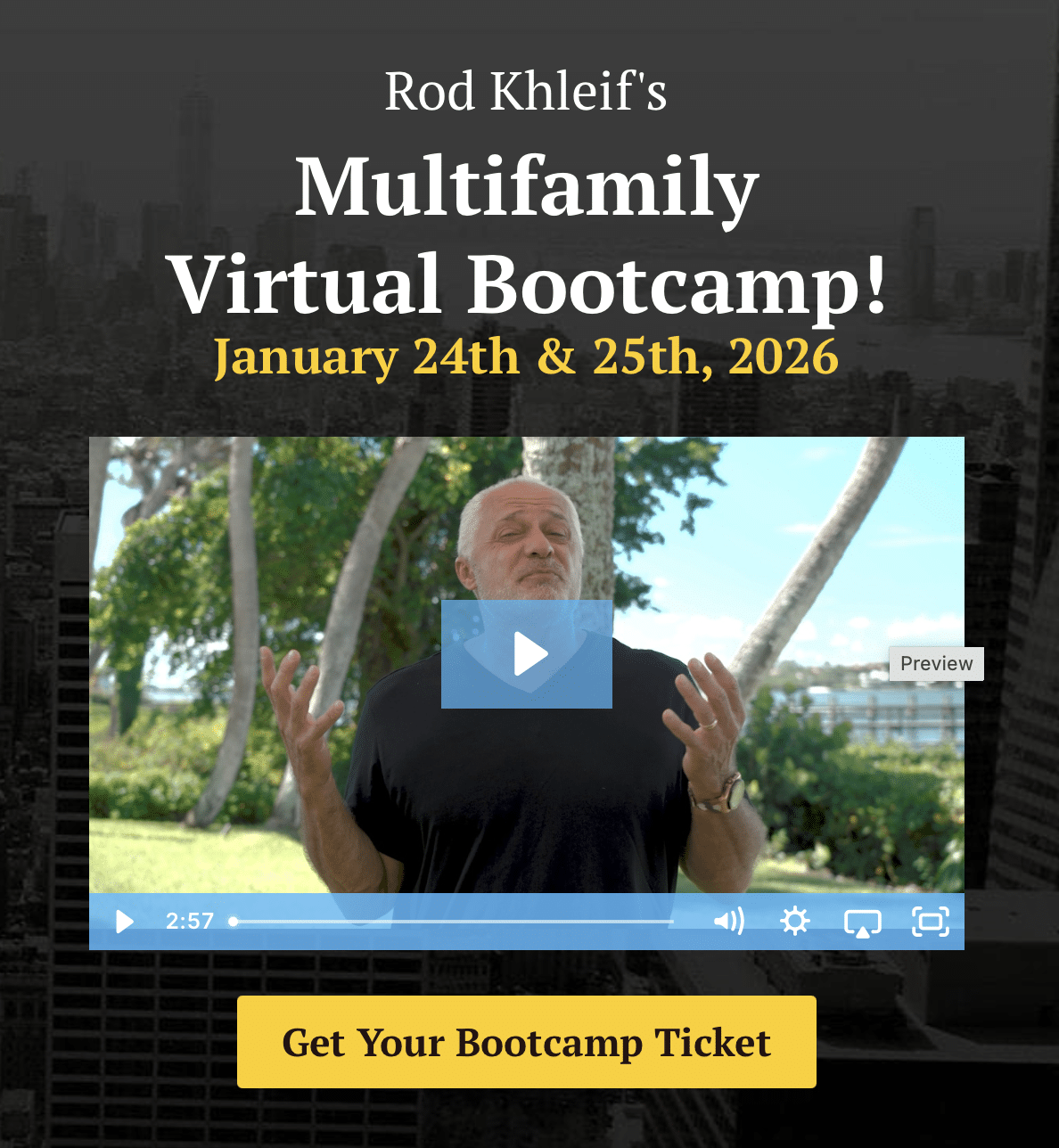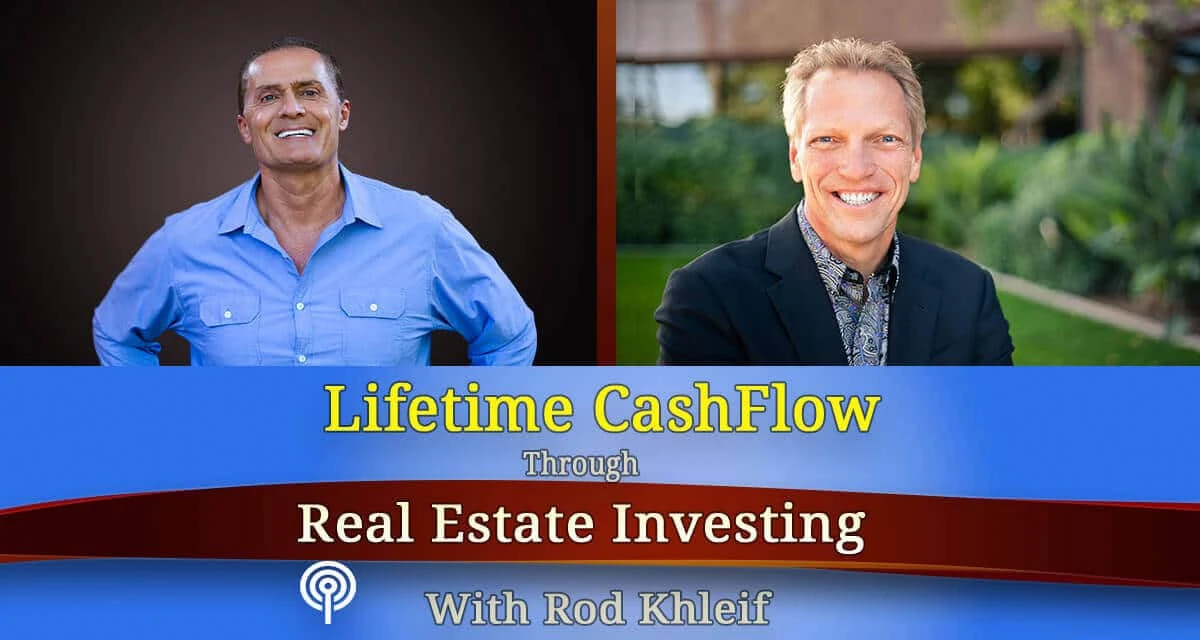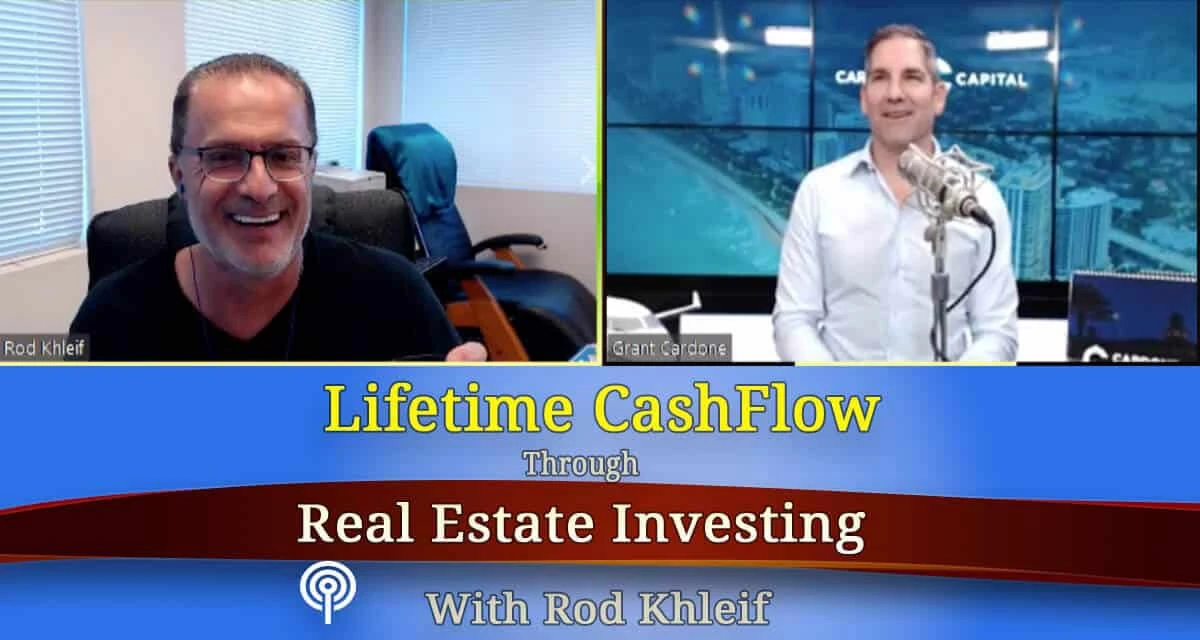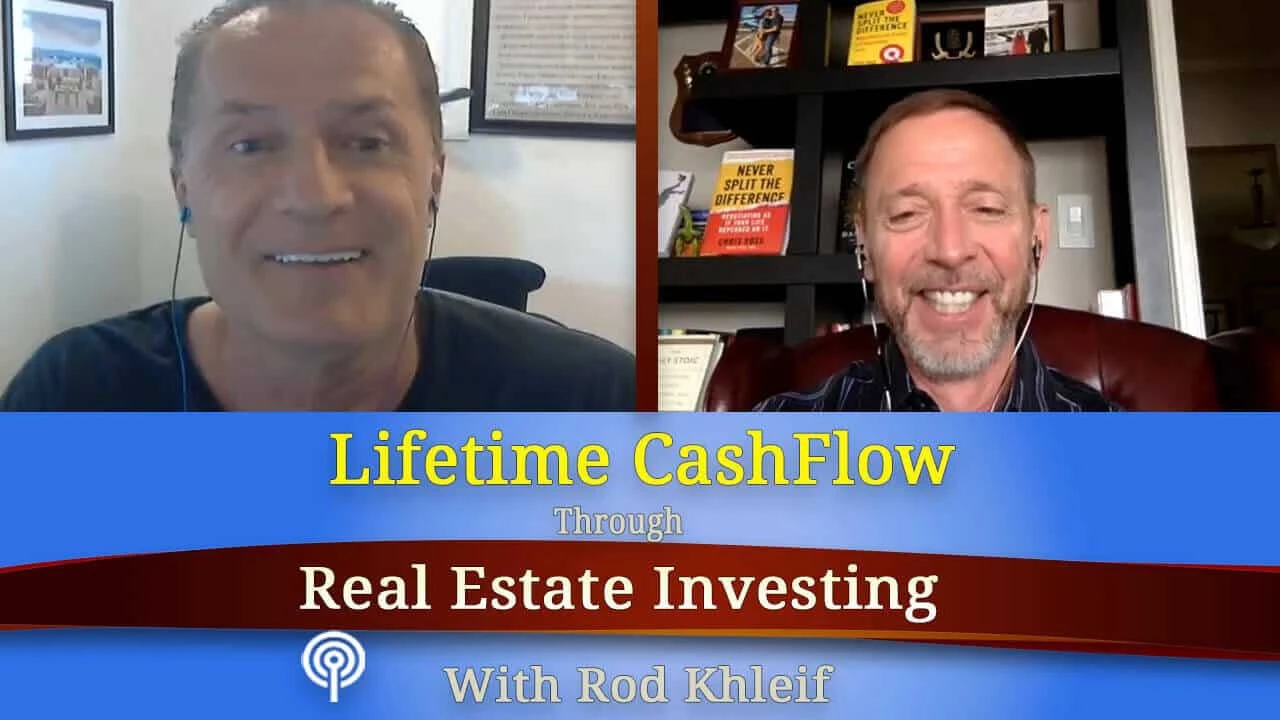Joseph Cornwell is a full-time real estate investor, general contractor, and podcast host with a diverse background in law enforcement and real estate. Born and raised in Milford, Ohio, Joseph served as a police officer from 2012 to 2021 before fully transitioning into real estate. Since 2016, he has sold over 175 properties totaling nearly $70 million in volume, while building a personal investment portfolio of 135+ rental units across single-family, multifamily, mixed-use, and new development projects. In 2017, he launched ROS Construction LLC to handle major renovations and now leads a team of 15 full-time employees completing over $3M annually. Joseph also owns Realty One Stop, offering sales, leasing, and construction services, and is a host on the Best Ever CRE Podcast, the industry’s longest-running daily real estate show.
Here’s some of the topics we covered:
How a Cop Became a Full-Time Real Estate Investor
Turning a Side Hustle Into a Real Estate Empire
Vertically Integrating Your Company & The Positive Effects
The Trump Tariffs & How It Affects Real Estate
What’s Really Driving the Surge in Prices Right Now
Why Picking the Right Asset Class Can Make or Break You
The Window of Opportunity Opening in Multifamily
The Challenges of Working With Counties and Cities
Why Moving at Your Own Pace Is the Real Superpower
The Wildest Story From Joseph’s Days as a Cop
To find out more about partnering or investing in a multifamily deal: Text Partner to 72345 or email Partner@RodKhleif.com
Full Podcast Transcript: Ep #1092 – Joseph Cornwell on Lifetime Cash Flow Through Real Estate Investing
Introduction & Opening Remarks
Rod Khleif: So do you ever get stuck? You know, maybe you’re stuck knowing you need to make a decision to improve your life, but you’re just continually putting that decision off. So many of us stay stuck in a life we don’t love, working at a job we don’t love, or sometimes even in a relationship that’s lost love and we stay in.
Rod Khleif: We don’t make a decision because of fear or because of limiting beliefs. And we stay stuck because we’re comfortable sometimes as well. What many people don’t realize is that their life changes the moment they make a committed decision, and stick with it. Now, if you’re in indecision, indecision has been around your finances, and maybe you’ve been on the fence about pushing forward in your multifamily investing career, then I want you to do everything you can to push off that fence.
Rod Khleif: I’m going to do everything I can to cause you to do that and make a decision. And it’s a simple decision that’s just to come to one of my virtual boot camps. I’ve got one coming right up, and I promise you’ll be glad you did. My two day virtual boot camp frankly, kicks butt, and I don’t sell anything there.
Rod Khleif: You’ll love it. The price is ridiculously reasonable, and you’ll learn what you need to know to buy multifamily. And just as importantly, I hope you make that decision to actually take action with what you learn. You know, I get thank you notes and messages and emails and DMs from people literally every day telling me that they took action on their dreams.
Rod Khleif: And I want one from you. So make a decision. It’s not about the money, because the tickets, like I say, are ridiculously reasonable. It’s just about committing the time to immersing yourself for two days in this exciting business and taking action to create the freedom you deserve, your family deserves. Text the word bootcamp to 72345 or go to RodsBootcamp.com right now and I’ll see you soon again.
Rod Khleif: Text boot camp to 72345. All right, let’s get to it.
Rod Khleif: Welcome. This is the lifetime cash flow through Real Estate Investing podcast. This is where you’ll learn strategies to help you achieve lifetime financial freedom through real estate investment. Your host, Rod Khleif, has owned over 2000 homes and apartments, and he brings experts in all aspects of real estate investment and management onto the show. Now here’s your host, Rod Khleif.
Rod Khleif: Welcome back to Lifetime Cash Flow Through Real Estate Investing. I’m Rod Khleif, and I’m thrilled you’re here. You’re really going to enjoy today’s podcast interview with a gentleman named Joseph Cornwell. And, he is one of the hosts of the Best Ever CRE Podcast – the industry’s longest-running daily real estate show. He’s been on this show a couple of times. He’s a big hitter in the multifamily space, and he’s got a podcast where they literally go every single freaking day. So I think he got burned out and brought in other people, and he’s good friends with Joseph here. And so Joseph, I’m going to, rather than butcher your bio, just have you welcome our audience. Welcome, number one.
Joseph Cornwell: Thank you. Yeah. And I’m just going to give you a little background about myself and why real estate and why now. I’m a host of a big podcast and, yeah, let me bring you current.
Joseph Cornwell’s Background & Early Real Estate Journey
Joseph Cornwell: Yeah. So, I mean, I started in real estate back in, I guess, 2011 technically. So I did a live-in flip on my first home. Just regular residential buyer.
Rod Khleif: Good timing.
Joseph Cornwell: Yeah. You know, I was 21, so I bought my house early, compared to a lot of my generation and my friends and things like that. But I basically made the decision like, hey, I don’t want to go out and buy or rent an apartment and waste money on rent. I didn’t know much about money.
Joseph Cornwell: I didn’t have a lot of money. I didn’t come from a family with a ton of money, but I knew enough to say, okay, well, back then in Cincinnati—where I’m from and still live—rent was like $300 or $400. I realized that throwing money away on rent wasn’t a good idea. So if I could qualify for a house, that was probably a smarter move. That was about all I knew about real estate: I didn’t want to throw my money out the window. So I bought my first house, fixed it up myself.
Joseph Cornwell: If you remember those old Home Depot manuals where you could learn how to drywall and frame it… no kidding. YouTube was just starting to become popular, but I remember going to Home Depot and buying my first materials for the house, and they would give you a book when you checked out. So I read that book and basically fixed up that first house with a lot of DIY, learning as I went.
Rod Khleif: How old were you then?
Joseph Cornwell: 21.
Rod Khleif: 21 and 21 when?
Joseph Cornwell: I bought my first house. And so at the same time, I was just coming out of a police academy. I got a two-year degree, went to police academy, fixed up that house, and then started my career as a law enforcement officer.
Rod Khleif: A patrolman?
Joseph Cornwell: Yes. Yep. I was a police officer for ten years total.
Rod Khleif: Before we get into some crazy stories from your days on the force, tell us more about that early real estate flip.
Joseph Cornwell: Okay. So basically, I lived in that house for three years, sold it, and I think I made about $41,000 just off appreciation. I looked at it as, I had no idea what was happening in the market or real estate. I just knew I modernized this old house a little bit. And I made about 70, 80% of what I would have made in a year as a cop from that live-in flip—totally by accident. That really opened my eyes to real estate. I thought if I educated myself, learned the business, there could be something here. Back when I was a police officer, I even saw real estate as a path to a comfortable retirement.
Joseph Cornwell: I remember when I was about 25, I looked around and saw many older police officers, often in their 50s or even 60s, who were still working. Many had been divorced several times—a common trend in law enforcement. Those experiences showed me what I didn’t want my life to look like in 30 years.
Rod Khleif: Those are some important lessons.
Joseph Cornwell: Absolutely. It opened my eyes between my career as a cop and selling my first personal residence. I realized there was something here I needed to dive into. That’s when I started exploring real estate education—I found BiggerPockets, consumed some of your content, and eventually got introduced to the Best Ever CRE Podcast. I met Joe Fairless at a local meetup in Cincinnati; that set off a chain reaction that led me down the path of making money in real estate, whether as a side hustle or eventually more.
Transition Into Professional Real Estate & Vertical Integration
Rod Khleif: So you moved from flipping to other strategies. What did you do next? Did you start flipping more or try another approach?
Joseph Cornwell: I looked at flipping, but I didn’t like it because it felt like trading time for money. It could be a well-paying job if done at scale, but I wanted to build something that wouldn’t just be another job. That’s when buy-and-hold made more sense. I started working with a couple of local real estate agents, and quickly realized most of them didn’t know much about investment properties. That was eye-opening.
Rod Khleif: Right. And on that note, I always recommend getting in line with an agent who understands multifamily. Often, a multifamily property will hit the local MLS, and many agents have no clue how to price it, especially when the property isn’t a single-family home.
Joseph Cornwell: Exactly. So I reached out to a few agents—one I went to high school with, the one who helped me buy my first house, and so on. They showed me some rentals and I realized I actually knew more about investment dynamics than they did. That led me to get my real estate license in Ohio in 2016. I started making offers on deals while still working as a cop.
Rod Khleif: So you weren’t selling other people’s houses; you were using that license to facilitate your own investments.
Joseph Cornwell: Right. It was never my intention to become a traditional agent. I was focused on my own deals. I made a bunch of offers. At the time, I was only saving about $500 a month from my police paycheck. It took about 18 months until I found the right deal—a property listed in the small suburb of Deer Park near Cincinnati. It was a little duplex that had been trashed; tenants were hoarders and drug addicts. The property dropped its list price by about $30,000, and I ended up buying it for $89,000 with all the money I had at that time. I then fixed it up with some help from my stepdad, paid him back with interest, and later refinanced that first property to help with a down payment on a six-unit property.
Rod Khleif: So that’s your “bird” strategy – buy, refinance, and repeat. And by the way, for anyone who doesn’t know, that stands for Buy, Equity, Refinance, and Repeat.
Joseph Cornwell: Exactly. I kept rolling with that model, gradually scaling the number of properties. Eventually, as my portfolio grew, I even started documenting what I was doing on social media. It started with simple Facebook posts, pictures of properties before and after renovations, which eventually helped build my construction business as well as my real estate sales operations through Realty One Stop.
Rod Khleif: And you even worked as an agent for a while, right? For nine years?
Joseph Cornwell: Yes, I did—though it wasn’t my main goal. I just managed my own deals and grew my portfolio alongside.
Market Trends, Tariffs, & Economic Challenges
Rod Khleif: Let’s talk economics for a bit. With tariffs in the news, how do you see that affecting construction and real estate?
Joseph Cornwell: The impact of tariffs is a complex issue. Ultimately, the effect on real estate will be felt through construction costs. For example, a significant portion of our building materials comes from overseas and Canada, so tariffs can drive prices up quickly. Right now, we’re giving 30-day estimates on projects without being fully sure how costs might change over time.
Rod Khleif: And the volatility in the market—just look at interest rates and the dramatic shifts in the stock market—might even push people out of stocks and into real estate. With real estate, you have an asset where, once you lock in your debt, your asset is tied to the net income, which tends to rise along with rents.
Joseph Cornwell: Exactly. Inflation is a double-edged sword. It does lift asset values as rents and net incomes go up, but that can also squeeze tenants. The concern is, after several years of rapid increases, where does the burden fall on tenants when inflation remains high over the next few years?
Rod Khleif: And another factor is the mounting debt in this country—$36 trillion. We’re barely even paying the interest on that debt. A recession might even be inevitable, which could reset the market and create opportunities for those who are prepared.
Joseph Cornwell: Right. It’s a volatile time. Lenders are already under pressure, and many are starting to foreclose or renegotiate deals, which could lead to significant discounts on multifamily complexes. That’s when the real opportunity arises, provided you’ve built your business conservatively.
Rod Khleif: It really comes down to doing your stress tests, raising a bit more capital than you think you need, and not getting carried away. Some deals might seem tempting, but if you’re not comfortable with the risk, it might not be worth it.
Lessons Learned, Advice & Personal Stories
Rod Khleif: Let’s shift gears a bit. In your journey, what would you say is your superpower that has contributed to your success?
Joseph Cornwell: My biggest strength is that I’m willing to buy properties that nobody else wants. I don’t judge a deal solely on location—instead, I focus on the potential value. I’ve taken on properties where, for example, the entire main beam might have collapsed in an old duplex or triplex, and I’ve fixed them up by addressing those structural issues. This gives me a competitive advantage because most investors shy away from these challenges.
Rod Khleif: Sometimes, having a friend in a completely different niche can be an eye-opener too. I have a friend in the Northeast who replaces old oil tanks that other investors leave behind because of environmental issues. It goes to show that if you have the right team and expertise, you can turn any challenging property into an opportunity.
Rod Khleif: Speaking of challenges, tell us about one of those doozy deals where you got your ass handed to you and the lesson you learned.
Joseph Cornwell: I’m currently working on a five-unit building in Northern Kentucky, in a town called Covington—just ten minutes from downtown Cincinnati. On paper, the deal made sense. But I didn’t do enough research on the local zoning and building department. I learned the hard way that the city and the county had very different expectations regarding permitting. The city was eager because the property was on its condemned list, but the county, which actually issues the permits, was completely uncooperative. It took us over a year just to get the permits approved, and we even ended up hiring the wrong architect initially. That delay hit our holding costs hard and taught me to always get every detail in writing and to know exactly who is on the hook during the permitting process.
Rod Khleif: That’s a reminder for anyone working with local governments: document everything and follow up relentlessly.
Joseph Cornwell: Absolutely. It’s a game of playing by their rules, even if it means over-disclosing everything. Sometimes, transparency can backfire if the local “old boys’ network” doesn’t want you to know the full story.
Rod Khleif: For our listeners who may be working a 9-to-5, maybe as police officers or in another field, what advice would you give if they want to start building a path out of their current job into real estate?
Joseph Cornwell: The key is to move at the pace you’re comfortable with. Start small—a duplex or a small rental property. A mistake on a small deal is recoverable, but a multi-million-dollar deal can be devastating if something goes wrong. Build your experience gradually, and let each step prepare you for the next. The journey from buying one unit to eventually syndicating a deal takes time and demands that you learn from each step, whether it’s buying sight unseen or partnering with capital.
Rod Khleif: Education plays a huge role here too. I know some people prefer to learn the hard way, but paying for proper education, attending boot camps, and mentoring can save you from making that one $500,000 mistake.
Joseph Cornwell: Education is everything. Although I consider myself stubborn—I never paid for courses or coaching early on—I now see the value in structured learning. I eat my own cooking now by constantly reading and staying curious. Even though I built my business the hard way, I wouldn’t advise someone else to do the same if they can avoid costly mistakes.
Funny Cop Story & Closing Remarks
Rod Khleif: Now, to lighten things up a bit—tell us your craziest cop story. I know you’ve got a few, but give us one that’s funny.
Joseph Cornwell: Oh man, there’s so many, but I’ll share a really funny one. Around 2:30 a.m. in 2020, I got a call about a guy at an Oriental Massage parlor—yes, that’s the name—banging on the door. I went over and found him sleeping in his car behind a gas station. I woke him up and asked what he was doing. He said he came for a massage, even though it was 2:30 a.m. I could definitely tell he’d been drinking. I ended up saying, “I’m not going to charge you for this; just leave your car here and I’ll take you home.”
Joseph Cornwell: When I got him home and was about to tell him I’d let his wife know what he was up to, the guy went ballistic—screaming, cursing, making a scene in his own driveway. It was hilarious in retrospect. I even recorded the entire story on my phone and posted it on TikTok. The video went viral with around 10,000 views in ten minutes. Of course, TikTok later banned my video for using the term “oriental” because it’s in the name of the business, but I challenged that ban. It’s one of those stories that I love to tell at parties.
Rod Khleif: Wow, that definitely scared the daylights out of him at the time! But it really shows the unpredictable nature of both police work and real estate. Before we wrap up, what’s your favorite part of what you do now?
Joseph Cornwell: For me, it’s the realization that what we do goes beyond just chasing money or freedom. Earlier this year, I merged with one of my best friends—another construction business owner. At a company party, we brought our crews together and reminded everyone that whether you’re a real estate investor, contractor, or builder, we’re providing people a safe, quality place to live. Even when dealing with annoying tenants and endless repairs, it’s fulfilling to know that our work shapes people’s lives in meaningful ways. I remember a project where we transformed a student rental near the University of Cincinnati in a rough neighborhood into a beautiful, modern home. Seeing those students—who once lived in cramped, rundown conditions—moved to tears on moving day really drove home that there’s a deeper meaning to our work.
Rod Khleif: That is a powerful reminder that real estate isn’t just about numbers; it’s about people and community. Thank you for sharing that heartfelt perspective.
Rod Khleif: I really appreciate you coming down today, Joseph. I know you had a wedding to attend, and it all worked out perfectly.
Joseph Cornwell: Thanks, man. Have an awesome experience at the wedding—I appreciate you having me.
Rod Khleif: Likewise. And thank you for listening to the Lifetime Cash Flow Through Real Estate Investing podcast. If you’ve enjoyed the show, please take a minute to visit iTunes and leave your comment. For more resources or to connect with us further, please visit our website at radcliff.com. Tune in next week for our next show.








